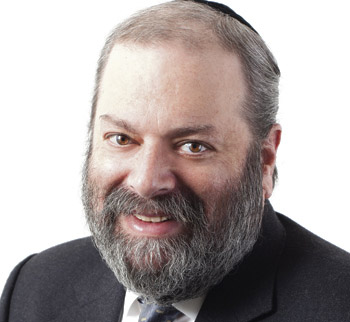Shimon Fogel
This August, delegates will meet at the General Council of the United Church of Canada where they will decide on a new policy toward the Middle East, including a proposed boycott of Israeli settlements. If the policy is ratified in its current form, the United Church will exit the ranks of the genuine peace movement and enter the same camp as those anti-Israel activists who aim to isolate and undermine the legitimacy of Jewish state.
The proposed boycott is based on a recent report by a United Church working group that, despite containing some positive aspects, is largely marked by historical distortions. In the report’s initial version, perhaps the most obscene is a direct comparison between the Holocaust and the challenges faced by Palestinians. Shockingly, the report stated that both were characterized by the denial or loss of dignity (“the deepest meaning of the Holocaust.”) It further describes Israel’s presence in the West Bank as “the primary contributor to the injustice that underlies the violence of the region” – a baffling statement given the atrocities inflicted by the likes of Syria, Iran, Hamas, and Hezbollah. Unfortunately, the words “Hamas” and “Hezbollah” appear not once in the United Church’s 26-page report.
The report concludes by putting virtually all of the onus on Israel to resolve the conflict, calling for a church-wide boycott of Israeli products from settlement communities in order to pressure the Jewish state. Regardless of one’s opinion on the long-term status of the settlements (and Jewish opinion – both Canadian and Israeli – is quite diverse on this topic), to propose a boycott of settlements is to ignore a basic fact of history. For it is indisputable that when Israel has had a reliable partner for peace on the other side of the table, Israelis have made serious compromises on the settlements.
In fact, Israel withdrew thousands of settlers from the Sinai after signing a peace agreement with Egypt, and peace has lasted for some three decades. However, when Israel removed every last settlement from Gaza in 2005 as a unilateral concession, the response was the firing of 10,000 missiles and mortars from Gaza into Israel. The lesson is clear. A future for both sides can only be secured through a negotiated peace accord that ends the conflict once and for all (and addresses various issues, including settlements). In other words, violent Arab rejection of Israel since 1947 is the core issue, of which the post-1967 settlements are one of numerous resulting products.
As Jewish Canadians, regardless of our healthy diversity of opinion on Israeli policy decisions, we cannot be silent bystanders as the United Church aims to target Israelis for boycott. Now is the time for solidarity with our fellow Jews and principled action as a community.
The Centre for Israel and Jewish Affairs, and Jewish communities across Canada, are reaching out to our neighbours in the United Church. This critical work depends on grassroots Jewish activists. It depends on you.
There are two simple steps you can take to make a difference today. First, get the facts on the United Church’s proposed policy at www.cija.ca/issues/ucc. Second, call, e-mail, or arrange a meeting with your local United Church clergy. Go to locator.united-church.ca to find a local congregation. Make the case for the church to promote peace and reconciliation – not boycotts.
Shimon Fogel is CEO of the Centre for Israel and Jewish Affairs.
